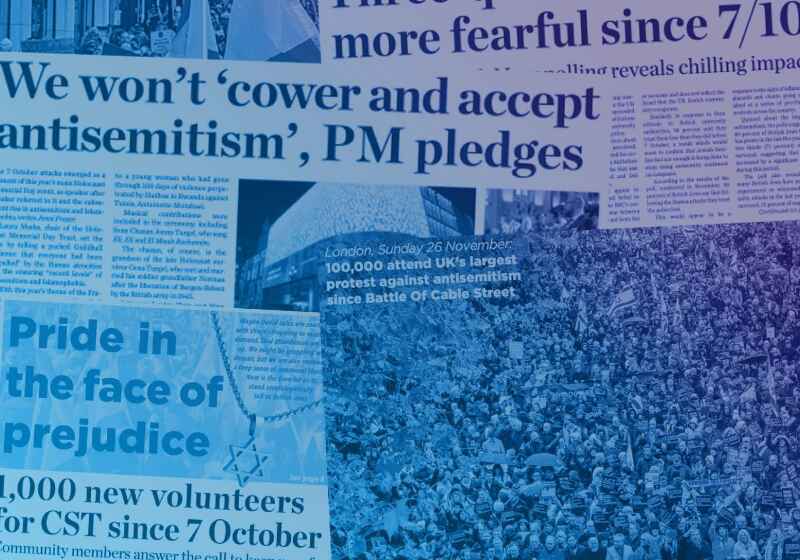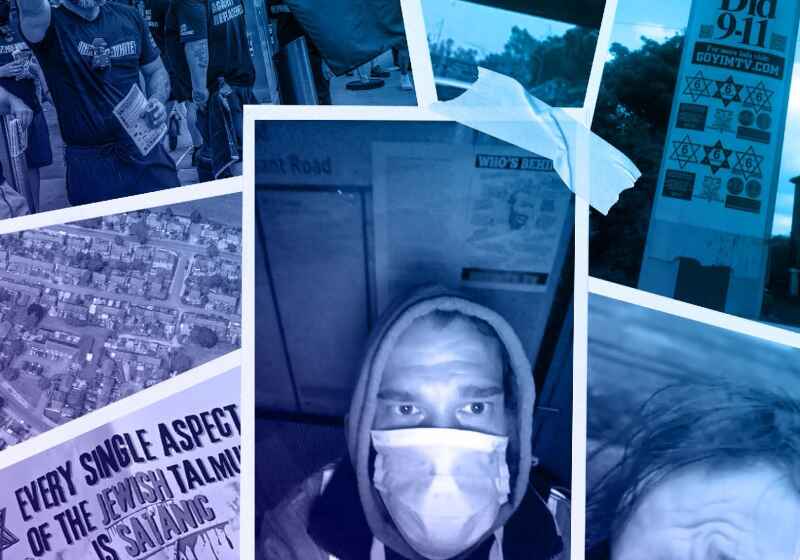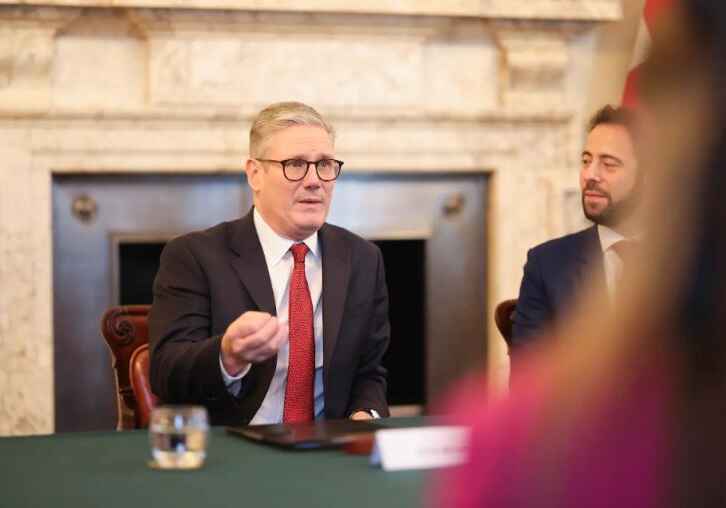CST Blog
The Prime Minister’s speech: counter-extremism in a liberal democracy
21 July 2015
The Prime Minister gave an important speech yesterday to set out the framework, and much of the detail, of the government’s counter-extremism strategy for the next five years. It was a landmark statement in Britain’s efforts to challenge and reduce the appeal of Islamist extremism.
CST welcomes this speech as further proof of the government's determination to address and tackle the root causes of jihadist terrorism and associated anti-Jewish hatred. It develops themes raised by David Cameron at threeCSTdinners in recent years. We particularly note the inclusion of antisemitism as a sign of extremism, and have worked tirelessly to promote this understanding within government and Police.
On one level, the Prime Minister’s speech provided detailed and specific proposals – too many to list here – to combat extremism and promote integration. More profoundly, though, it was an attempt to put forward a set of British values, and therefore an idea of British identity, for a modern, diverse Britain. The speech offered a vision of British society that is liberal rather than multicultural, but also inclusive and aspirational. This does not mean that the Government is confusing its counter-extremism and integration policies: rather, it is the idea that countering extremism is part of the larger work of building a better society for all who live here.
Thus the Prime Minister condemned Islamist conspiracy theories about Jews and far right slanders of Muslims, alongside a call for more minority ethnic representation in politics. He outlined proposals to restrict extremist recruitment in prisons and online, while also promising to increase efforts to tackle forced marriage and educational segregation.
At the heart of the speech was the government’s determination to tackle the Islamist ideology that lies at the root of the jihadist terrorism that has seen Jews murdered in Paris, Copenhagen, Brussels and Toulouse in recent years. This is welcome and long overdue.
Anyone who has watched Hizb ut-Tahrir and other Islamist groups proselytise about a caliphate on British campuses for over two decades, will not be surprised that some British Muslims have welcomed the Islamic State that now occupies much of Syria and Iraq.
Similarly, anyone who is familiar with the intolerant and bigoted interpretations of sharia law espoused by some Salafi preachers in this country, will understand that some of the British Muslims who have chosen to live under Islamic State rule have done so precisely because it is so fanatical and brutal.
Many of those activists and academics who criticise the government’s Prevent strategy do not even accept that there is an ideological problem to be tackled. Instead they spread baseless fear in Muslim communities that feeds the very grievances on which extremists rely.
This is why the Prime Minister’s call for stronger efforts to challenge extremist views is so welcome. It is commonly argued that even the most hateful, extremist speakers should be heard, so that they can be challenged and their arguments dismantled. That is fine – as long as those views are actually are challenged. Too often this does not happen and the ‘free speech’ argument becomes, in effect, an argument to do nothing. Those who prefer free speech to censorship or bans need to heed the Prime Minister’s call for hateful ideas to be properly opposed.
Yesterday’s speech correctly argued that opposing extremism of all kinds should include the positive celebration and championing of Britain’s liberal democracy. Free speech, freedom of religion, the rule of law, equality for all: as we have written previously on this blog, secular liberal democracy is the greatest guarantor of these rights for minorities. Those British Jews whose families found refuge here in previous generations know this all too well.
This speech also reached out to British Muslims in a positive way. The Prime Minister acknowledged that Muslims make a “profound contribution” to Britain, proud to be Muslim and to be British, and that they hate the damage done by extremists as much as everyone else. Significantly, he acknowledged the role that racism and bigotry can play in persuading young British Muslims (and people from other minority ethnic backgrounds) that they have no place in British society.
His call to work together to build our shared society is in line with CST’s core values that underpin our collaborative work with similar organisations from other communities.
Importantly, in this speech the Prime Minister repeatedly identified antisemitism and belief in Jewish conspiracy theories as part of the package of extremist ideas. It is fitting that Cameron did so in Birmingham. As he explained at the CST Dinner in 2008, this is where he first realised how prevalent conspiracy theories have become in some Muslim communities:
Last year I visited Birmingham Central Mosque. While there, I was told that the 7/7 bombers were innocent and that, in fact, MI5 may have carried out the atrocities. I was particularly shocked because the person who said this was not some teenage hothead: he was the chairman of the Mosque. Conspiracy theories are a convenient way for those who sympathise with terrorist aims to dodge moral responsibility for terrorist acts. The same people claim that the twin towers were brought down by the CIA or Mossad.
CST has repeatedly explained that antisemitism and belief in conspiracy theories are part of the same extremism that threatens British society in general, and we are pleased to see that this is now part of the government’s thinking. When he returned to this theme in this latest speech, the Prime Minister made explicit the connection between antisemitic conspiracy theories and the extremist worldview:
No-one becomes a terrorist from a standing start… It may begin with hearing about the so-called Jewish conspiracy and then develop into hostility to the West and fundamental liberal values, before finally becoming a cultish attachment to death... We must demand that people also condemn the wild conspiracy theories, the anti-Semitism, and the sectarianism too. Being tough on this is entirely keeping with our values.
We could not put it better. Condemning and opposing antisemitism, bigotry, extremism and hatreds of all kinds are in keeping with CST’s values, too, and we will continue to play our part in combating extremism and helping to build a better society for all.
Read More
CST meeting with Prime Minister Keir Starmer
2 December 2024

Antisemitic Discourse in Britain 2023
28 October 2024

Pathway to Terror
21 October 2024
